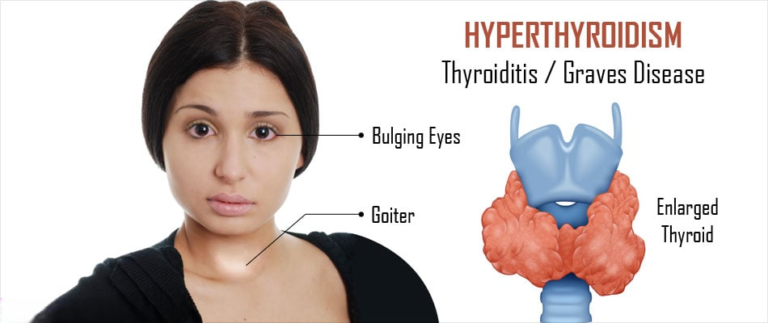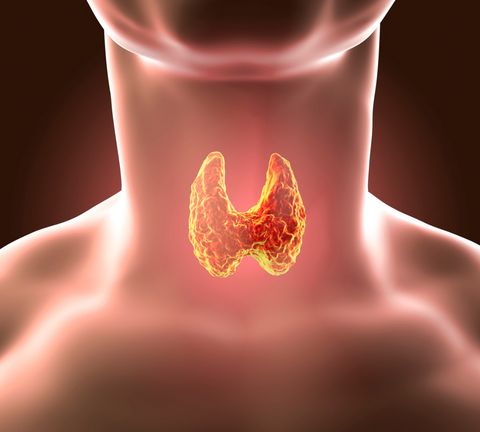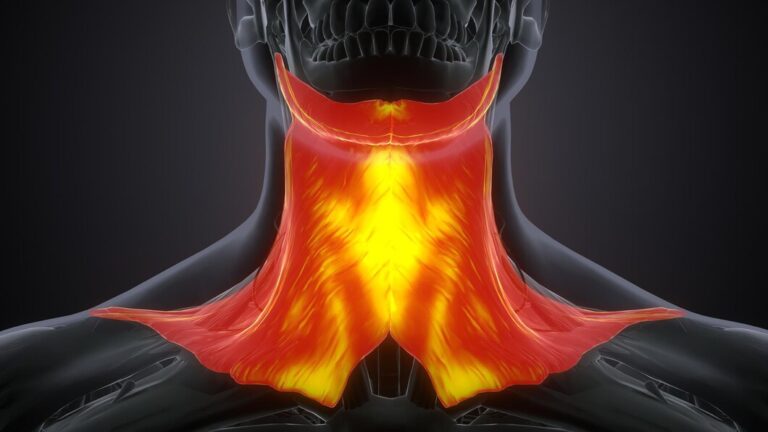Understanding and Managing Hyperthyroidism: What You Need to Know
Hyperthyroidism is a medical condition characterized by an overactive thyroid gland, leading to an excess production of thyroid hormones. This condition can have significant impacts on various bodily functions and overall health. Understanding hyperthyroidism, its causes, symptoms, and management strategies is crucial for individuals affected by this condition and for those involved in their care.
What is Hyperthyroidism?
The thyroid gland, located in the front of the neck, plays a vital role in regulating metabolism by producing hormones such as thyroxine (T4) and triiodothyronine (T3). These hormones control how the body uses energy, regulate temperature, and affect other vital functions. In hyperthyroidism, the thyroid gland becomes overactive, producing an excessive amount of thyroid hormones.
Causes of Hyperthyroidism
Several factors can contribute to the development of hyperthyroidism. One common cause is Graves’ disease, an autoimmune disorder where the body’s immune system mistakenly attacks the thyroid gland, leading to excessive hormone production. Other causes include thyroid nodules or lumps that produce excess hormones, thyroiditis (inflammation of the thyroid), and certain medications or supplements containing high levels of iodine.
Symptoms of Hyperthyroidism
Hyperthyroidism can manifest in a variety of symptoms, which may vary in severity among individuals. Common symptoms include:
- Unexplained weight loss despite increased appetite.
- Rapid or irregular heartbeat (palpitations).
- Anxiety, irritability, or nervousness.
- Fatigue or muscle weakness.
- Tremors in the hands and fingers.
- Heat intolerance and excessive sweating.
- Changes in menstrual patterns.
- Increased frequency of bowel movements.
- Difficulty sleeping.
- Enlargement of the thyroid gland (goiter).
It is essential to recognize these symptoms and seek medical evaluation if hyperthyroidism is suspected, as early diagnosis and treatment can prevent complications and improve outcomes.
Diagnosis and Evaluation
Diagnosing hyperthyroidism typically involves a combination of medical history review, physical examination, and laboratory tests. Blood tests measuring levels of thyroid hormones (T3 and T4) and thyroid-stimulating hormone (TSH) are commonly used to assess thyroid function. Additionally, imaging studies such as ultrasound or radioactive iodine uptake scans may be performed to evaluate the structure and function of the thyroid gland.
Treatment Options
The treatment approach for hyperthyroidism depends on its underlying cause, severity of symptoms, and individual patient factors. Common treatment options include:
- Medications: Antithyroid drugs such as methimazole or propylthiouracil (PTU) are often prescribed to reduce the production of thyroid hormones. These medications help normalize thyroid function and alleviate symptoms. Additionally, symptoms like tremors and an accelerated heartbeat may be treated with beta-blockers.
- Radioactive Iodine Therapy: Radioactive iodine is a common treatment for hyperthyroidism, particularly in cases of Graves’ disease or nodular thyroid disease. It involves ingesting a radioactive form of iodine, which selectively destroys thyroid cells, reducing hormone production. This treatment is usually effective but may result in hypothyroidism requiring lifelong thyroid hormone replacement therapy in some cases.
- Thyroidectomy: In severe cases or when other treatments are ineffective or not suitable, surgical removal of part or all of the thyroid gland (thyroidectomy) may be necessary. This procedure carries risks of complications such as damage to the vocal cords or parathyroid glands, which regulate calcium levels in the body. However, it can provide a definitive cure for hyperthyroidism.
Managing Hyperthyroidism
In addition to medical treatments, lifestyle modifications and self-care strategies can help manage hyperthyroidism and improve overall well-being:
- Follow-up Care: Regular monitoring of thyroid function through blood tests is essential to ensure treatment effectiveness and adjust medication dosages as needed.
- Healthy Diet: Consuming a balanced diet rich in nutrients, including iodine, selenium, and zinc, can support thyroid health. Avoiding excessive iodine intake and limiting caffeine and stimulants may help reduce symptoms such as palpitations and anxiety.
- Stress Management: Practicing stress-reduction techniques such as mindfulness, meditation, or yoga can help alleviate anxiety and promote relaxation.
- Adequate Rest: Getting sufficient rest and quality sleep is crucial for managing fatigue and promoting overall health.
- Avoiding Smoking: Smoking can exacerbate thyroid dysfunction and increase the risk of complications, so quitting smoking is strongly recommended.
Conclusion
Hyperthyroidism is a common endocrine disorder with significant implications for health and well-being. Understanding the causes, symptoms, diagnosis, and treatment options is essential for effectively managing this condition. By working closely with healthcare providers, adopting healthy lifestyle habits, and following prescribed treatment plans, individuals with hyperthyroidism can achieve optimal thyroid function and improve their quality of life. Early detection and intervention are key to preventing complications and promoting long-term health outcomes for those affected by hyperthyroidism.








